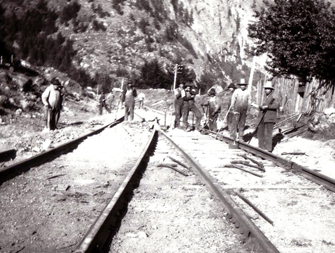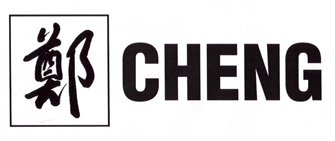"So the deal, according to my Dad, is that if all the Chinese guys in Vancouver volunteered for this [military] service, we would get the right to vote and [be] citizens."
Kevan Jangze
Kevan Jangze's grandfather, Cheng Ging Butt, literally tried his hand at building the railroad, but when he lost a finger under the weight of a steel rail, he gave it up for less dangerous work.
"Conditions were really primitive, it was really cold, it was not safe and Grandpa decided that he was not going to do this anymore," Kevin says. "He ended up with a grocery store, a temple, a cherry orchard, a still to make 'beverages,' and some houses of gaming. And so Grandfather, being quite the entrepreneur, built up this little empire."
Cheng Ging Butt, proprietor of Cheng Foo's in Yale, B.C., last stop on the steamship run, before the Cariboo, was a Chinese Canadian pioneer. His store provided supplies to the Chinese railway workers, who had to pay their own way while working for the Canadian Pacific Railway. Cheng landed in New Westminster, B.C. around 1871, at age 22, from Sun Hui village, early enough to avoid the head tax. At first he panned for gold in Barkerville, B.C., and then went to work on the railroad. He raised a family with Lena Jang, the wife he bought from the Leong family, who gave him eight boys and two girls. Cheng died in 1929, the year the Great Depression took away everything he'd earned.
next page >Kevan's father, Bevan Jangze (also known as Clarence Jang), was one of the younger boys. Canadian-born, but not a citizen because of the Exclusion Act, Bevan went to war as a special operations commando in Asia for a country that didn't recognize him. "His job was a radio operator. He was supposed to be dropped into Burma. The whole idea was, in all this, to get us the right to vote," Kevan says.
Bevan survived the war, as did two other brothers who served, but there was still discrimination. Clarence wanted to study engineering, but he was denied because Chinese weren't allowed into the professions in British Columbia. "Three brothers who went overseas ended up being tailors," says Kevan.
The battle never ended for Kevan's father, or his generation, many of whom continued to fight for their rights as Canadian citizens.
< previous page




































